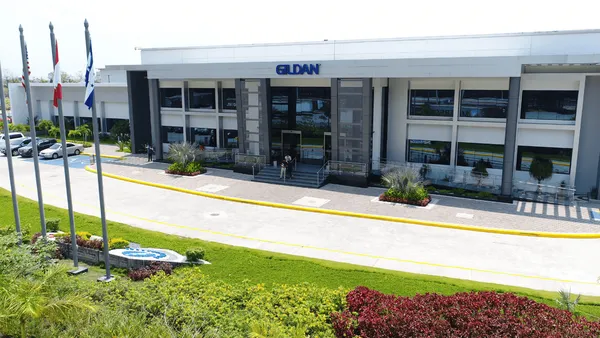Dive Brief:
- Walmart remains the largest company in the world by revenue, according to the annual Fortune 500 rankings released on Monday.
- While Walmart's revenue kept it at the No. 1 spot, where it has been for years, Amazon leapfrogged from No. 9 to No. 3 on the Fortune 500 list after the pandemic drove explosive growth at the e-commerce specialist.
- Other retailers in the top 100 of the list include Costco (No. 27), Home Depot (No. 41), JD.com (No. 59), Alibaba (No. 63), Target (No. 78) and Lowe's (No. 80).
Dive Insight
Each in their own way, Walmart and Amazon were both well-positioned to take advantage of the disruption caused by COVID-19.
As consumers went online to make purchases while avoiding stores, Amazon was the starting place for many of them. But when customers did opt for store shopping, they often consolidated their trips as mass merchandising generalists, Walmart chief among them.
Moreover, many shoppers used omnichannel options like curbside and in-store pickup like never before last year. During the holidays alone, pickup of online orders from stores grew by 103% last year, according to GlobalData research.
Walmart thrived in those conditions, after refocusing its online strategy around omnichannel and its stores, and with heavy online sales of groceries. The retailer's sales rose 6.7% to $559.2 billion in 2020, with U.S. comps up 8.6%, as the retailer leaned on its stores to support sales and after massive investments in digital operations.
Amazon, meanwhile, faced such feverish ordering on its platform that it temporarily paused fulfillment on nonessential items during the early weeks of the pandemic so it could focus on essential goods that were in high demand during those days of stockpiling and panic-buying. In 2020, the company's North American sales ballooned by 38.4% to $236.3 billion.
Amazon is getting ever closer in its rival's rearview mirror. Walmart has long been the country's and world's largest retailer by sales, and it has retained Fortune's No. 1 spot for most of the past two decades. But at least one forecaster, Edge by Ascential's Retail Insight research arm, predicts that Amazon's gross merchandise sales will surpass Walmart sales by 2025, which would put at least a symbolic end to years of Walmart dominance.
The battle among giants makes things difficult for those who are not Walmart or Amazon, or their smaller though still well-capitalized peers such as Target, Home Depot and Costco (all of which also posted banner growth during 2020). While the giants set the expectation on pricing, delivery speeds and omnichannel options, others are scrambling to beef up their technology and find ways to compel customers to their own stores in ways that don't leave them fighting the giants on fronts they can't win.














